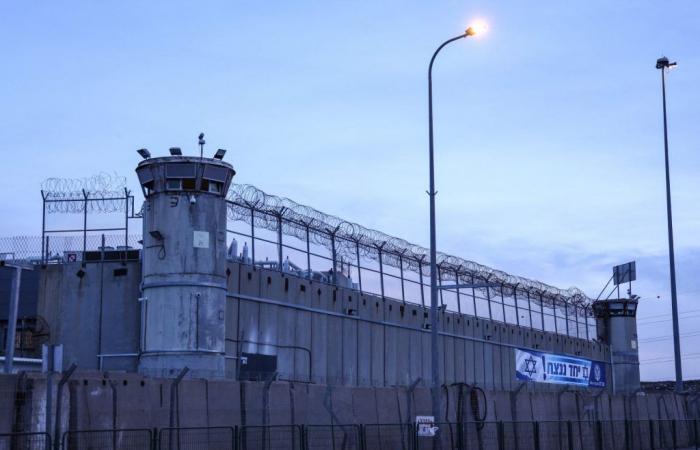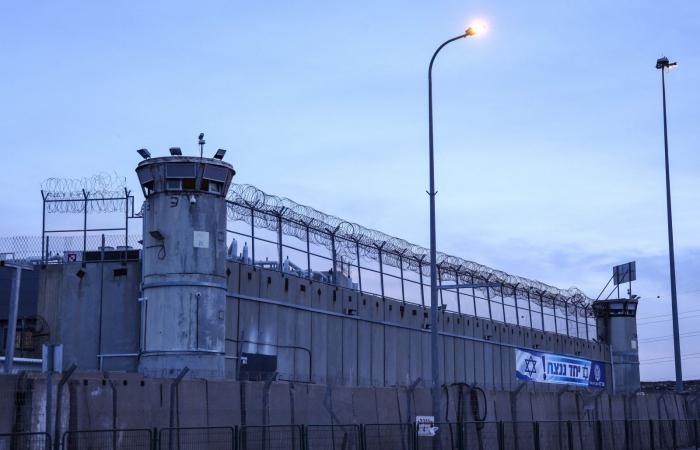This image shows the Ofer military prison located between Ramallah and Baytunia in the occupied West Bank city, amid preparations for the release of Palestinian prisoners in exchange for Israeli hostages held by Hamas in Gaza on November 25, 2023. (Photo by KENZO TRIBOUILLARD/AFP via Getty Images)
The Palestinian Legislative Council in Gaza demanded international inspections of Israeli detention centers after several prisoners who appeared frail and thin after months of detention were released this week.
Among those released was former Council President Aziz Dweik, who had been detained for nine months, accused of Hamas affiliation. He looked much thinner and paler than he did before he was detained.
The Council said it “looks with anger at the crimes committed by the enemy against prisoners, and the biggest example is the photo of Dr. Aziz Dweik when he left the occupation prisons.”
The Council alleged that the prisoners had been subjected to starvation, isolation and torture.
Dweik himself said Friday that the prisoners “went hungry 24 hours a day. “The prisoners are in poor health, suffering from skin diseases, and the food is insufficient even for children, let alone meeting the needs of adults.”
He added that there was practically no sugar, salt or fruit in the prisons.
CNN has asked the Israel Defense Forces and prison authorities for a response to the allegations made by the Council.
Most of the approximately 30 prisoners released from the Negev and Ofer prisoners this week were administrative detainees, who had not been charged with any crime.
One of them, according to the Palestinian Prisoners Society, was Saed Abu Shanab of Tulkarm, who had spent 21 years in Israeli prisons.
The Prisoners’ Society said the prisoners’ condition “reflects some of the harsh and humiliating conditions of detention, including acts of torture, abuse and starvation, as well as medical offences”.
In May, CNN published an investigation based on testimonies from whistleblowers at the Negev facility who reported that “doctors sometimes amputated prisoners’ limbs due to injuries sustained from being constantly handcuffed; [y] of medical procedures sometimes performed by unqualified doctors.”
In response to that report, the IDF responded that it “ensures appropriate conduct toward detainees in custody. “Any allegations of misconduct by IDF soldiers are examined and dealt with accordingly.”
The Israeli military has acknowledged partially converting three different military facilities into detention camps for Palestinian detainees from Gaza since the Hamas-led attack on Israel on October 7.
The Prisoners’ Society said in April that the vast majority of released detainees suffered from health problems “which required the transfer of some of them to hospital immediately after their release.”







